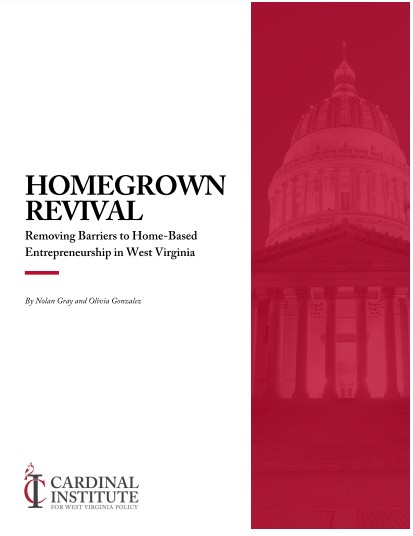INTRODUCTION
Over the past year, the coronavirus pandemic has upended the nature of work. For the first time, offices across the country sit empty as millions of Americans work from home. Yet for many, working from home has long been the norm. Indeed, over the past few decades, many millions of Americans have taken the step of starting and operating businesses out of their homes. Sometimes these homebased businesses (HBBs) grow into major companies like Amazon or Disney; sometimes they make individually modest contributions that can collectively build up local economies. As West Virginia contends with the twin challenges of sluggish economic growth and population decline, state leaders should acknowledge HBBs as a way to both attract mobile entrepreneurs and cultivate homegrown entrepreneurs already at work in the Mountain State.
Despite their important economic contributions, HBBs frequently face hostile zoning regulations and onerous permitting requirements at the local level, leaving them at constant risk of being shut down or otherwise locked out of growth opportunities. In cities and towns across West Virginia, HBBs are often made to secure permits from local regulators or limit their operations in extreme ways, with little regard for the impact that they may have on neighbors.
State and local policymakers should recognize reform in this space as an easy way to foster sustained economic growth. The following report makes this case. In the first section, we dig into the data on HBBs and the unique challenges facing West Virginia’s economy. In the second section, we discuss the potential economic contribution of HBBs in West Virginia and survey how various cities and towns across the state currently restrict them. A third and final section defines how state and local governments can embrace the nationwide push to remove unnecessary barriers to home-based entrepreneurship.


